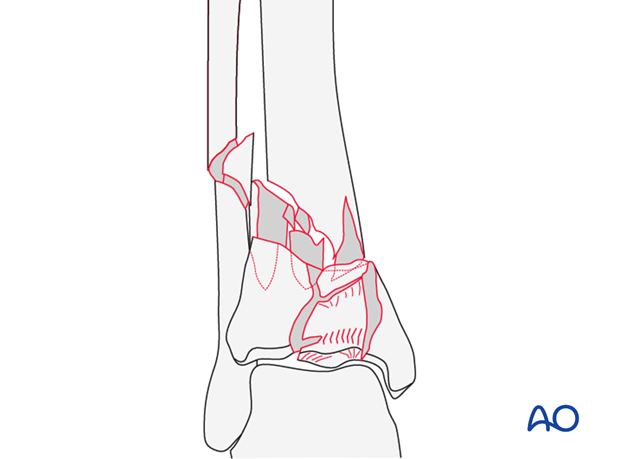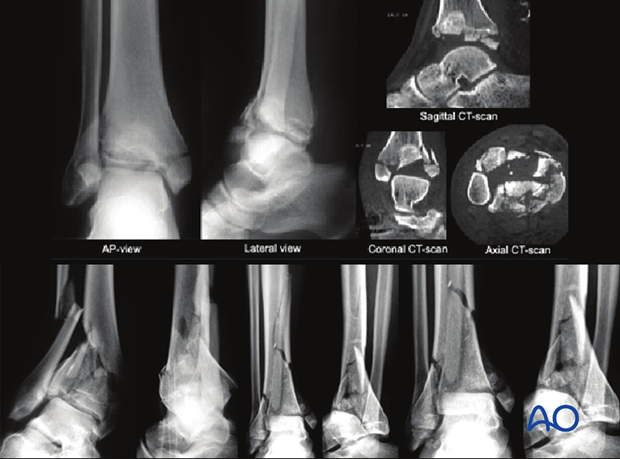Complete, multifragmentary articular and metaphyseal fracture
These fractures have multifragmentary articular surface injuries. Most have metaphyseal fragmentation as well.
They can be further described as:
- Multifragmentary epiphyseal fractures (classified by AO/OTA as 43C3.1)
- Multifragmentary epiphyseal-metaphyseal fractures (classified by AO/OTA as 43C3.2)
- Multifragmentary epiphyseal-metaphyseal-diaphyseal fractures (classified by AO/OTA as 43C3.3)
The fibula is usually fractured into two or more fragments. Rarely, it is intact.
Clinical assessment must include the condition of the soft tissues as well as the sensory and motor function of the foot structures. Special attention is given to any signs of a compartment syndrome.
Standard AP and lateral x-rays are taken. More detailed information is provided by CT-scans with 2-D and 3-D reconstructions.

Clinical assessment must include the condition of the soft tissues as well as the sensory and motor function of the foot structures. Special attention is given to any signs of a compartment syndrome. Standard AP and lateral x-rays are taken. In case of doubt, CT-scans may be helpful to detect or exclude involvement of the articular surface. For all distal tibia fractures, the fibula must be classified as intact, or fractured into two or multiple fragments.














